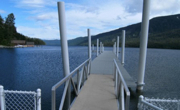-- a voice in Berlin with an update on the new age of sail What a place, what a time: Berlin's transition from a hard winter to a welcome summer. No time for springtime; we've all arrived at the global warming cook off. Who wants to contemplate such a thing? Yet, posing that question has a purpose here, to tell of progress on Culture Change's sail transport transition. The backdrop of Berlin is significant as a unique city of keen interest to those involved in social change and who are chafing in more stressful urban scenes. Brief background: Culture Change dates back to Fossil Fuels Policy Action, the Alliance for a Paving Moratorium, and the Auto-Free Times magazine, starting in 1988. We keep changing according to what we see as most relevant and effective. Thus the website sailtransportnetwork.org is becoming our main online presence, unless Facebook or some other online system wins out.  burgee flown by STN members
It has gotten to the point where the formal collective of Culture Change is history. This means that as founder/publisher/janitor I have to make decisions alone. Fortunately, the broad participation of dedicated collaborators has remained, and is once again seeing Culture Change through a transition. In this case a project spawned in 1999 (Sail Transport Network, in the Puget Sound) stands to become greater than the parent organization which may fade. Regardless, pushing along the Sail Transport Network (STN) is exciting. We feel like we are pioneers, connected to a few other players around the world. If you have been a long-time reader, you endured Culture Change's "negative" role from 2003-2010. And perhaps you became overwhelmed by the dreaded modern disease known as information overload. In this immediate past phase of Culture Change, we had to pound away on peak oil and petrocolapse while questioning the values of Western Civilization in these times of sudden mass species-extinction. But for all our efforts and experimentation we could not counter the dominance of well-funded activists' simplistic technofix stance. We found it just as difficult to get social critics to question the system they barely addressed. Meanwhile, our specific activist campaigns spanned from the plastic plague to nuclear power. Starting in 2008 our readers and colleagues in peak oil -- increasingly of the Transition Town movement -- signaled us that sail transport is the good news people need from Culture Change for addressing some core issues. The sail transport vision amidst triage 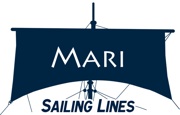 As part of the Culture Change/STN core group's repositioning, a new project is the for-profit Mari Sailing, part of the Sail Transport Network. (There will be more on Mari in a future post.) Partly because the corporate media hold business innovation in higher esteem than nonprofit programs, we have broadened our approach and stepped beyond our self-defined limits of nonprofit activity. We even sense the potential to make "business history" and help steer the world toward a non-petroleum sustainable future. The formation of our sail transport corporation will hopefully lead to accomplishing more than adding some credibility to the new sail transport movement/field. I arrived in northern Europe several weeks ago to perhaps find a new home. The sail transport movement is on the rise here more than anywhere else. I had sailed to Europe from California years ago, and have family here, so it's easy for me to belong. The adventure continues. My long-time colleagues in California and elsewhere in the U.S. are dedicated to continuing our sail transport work there too, as part of culture change. Our message for fundamentally shifting social values is somewhat veiled now, in terms of embracing a simple concept and smoothing over differences and debate. The activist intelligentsia will never agree exactly how peak oil and global warming are combining to throw society into a rapid economic decline. Moreover, these two governing influences are exacerbated by population growth, ecological degradation, the income-disparity crisis, and out-of-control debt. So it is time to come together any way we can with "a better model," instead of attacking the old one, as advocated by Buckminster Fuller. Topics for the CultureChange.org website, as we reorient it toward sail transport, will still cover the interrelated big-picture issues. But our limitations may become geographical, as tomorrow's societal triage takes the form of apparently writing off far-inland regions that lack navigable bodies of water. Yet, such regions can be part of our readership, and inlanders can relate to low-tech, non-petroleum aspects of the broader sail transport movement. People are waking up to their shifting positions in the rapidly transforming world. For some, a mere career adjustment seems to loom. For others, a quiet countdown is underway until TSHTF (the shit hits the fan). Ultimately, for all of us it is nature that will win out. Will we modern folk be on her team, or keep clinging to our illusion of separateness? To many, the ecological mess is not something worsening with accelerating tragedy, but is just another modern phenomenon of our impressive way of civilized life. With a sense of irony and amazement we at Sail Transport Network and Mari Sailing are beginning to engage the financial, governmental and industrial sectors as we present hope for the historic global transition in transport and trade. But we also know that eventually low-tech, DIY sailing, pedal and animal power, etc., are the future somewhere on the horizon. A kinder, gentler consumer economy My personal situation is paramount for me during these intense times, as yours probably is for you. One tries to stay above mounting mass fears by emphasizing the positive. It isn't hard to imagine a kind of society that values convivial living. For the car-free denizen trying to enjoy a big city today, urban safety is a major consideration. The terrorist kills so few in the U.S., while cars kill so many. But here in Berlin, like in Denmark and Holland, walking and bicycling the city streets is in a much friendlier environment than in the U.S. (aka the UPPA, the United Paved Precincts of America). 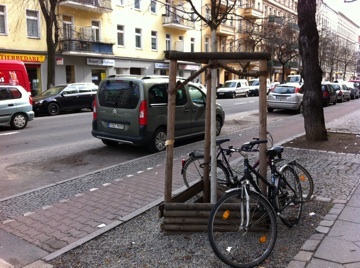 a REAL bike lane, NeuKolln, Berlin. photo by Jan Lundberg
Just as important as one's safety is being able to devote more time for friends and family -- a practice increasingly getting just lip service in the UPPA. Priorities outside its borders involve dedicating more days and nights to socializing and enjoying life. Surveys on happiness in nations confirm this. I sense a more relaxed vibe in the several European countries I have been visiting in the past year, compared to the more uptight and confused U.S. No wonder I seem to be relocating. The feeling in Berlin seems to be far calmer than in U.S. urban areas, except when at some major intersection buzzing with small cars. Berlin and Germany have more a live-and-let-live feel than the U.S., such as one's having no fear of police stopping you for sipping a beer as you walk down the wide sidewalk. One sees very few drunks, and almost no obese people. The idea of possibly encountering nut-cases around the next street corner, for example, is unknown. The social safety net has not been shredded in Germany, as in the U.S. -- or at least not yet. So a more pleasant and reasonable consumer economy is Germany today. Employment is far higher than in the several austerity-wracked Eurozone nations. 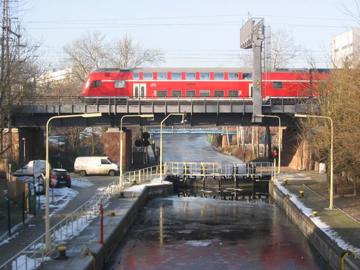 Landwehr Canal lock, Berlin
Yet, Germany is still a consumer economy. It will witness wrenching change, but how painfully is hard to gauge. The recession in this bastion of what's left of Europe's healthy corporate economy began several months ago. I have a new jingle: instead of "Springtime for Hitler and Germany" (from The Producers movie with Zero Mostel), it's "Springtime for Merkel and Germany." Not that she's any Nazi, although she is a friend of polluting corporations. She simply may have reelection or coalition problems after this affluent, calm spring that could be the last of its kind. Economic, energy and ecological realities are finally taking over. Editorializing and "journalism" in the global financial press dwell incessantly on a "recovery." Or, about our -- who is we? -- having to wait longer for a "recovery" for cherished "growth." As in the U.S., Europe chooses to ignore oil supply as a pervasive issue, even though cheap, conventional petroleum clearly peaked several years ago. New car sales in Germany are down recently, seen as alarming and ominous in the corporate press. It's cheered by those who share a vision for a sustainable, more convivial world. 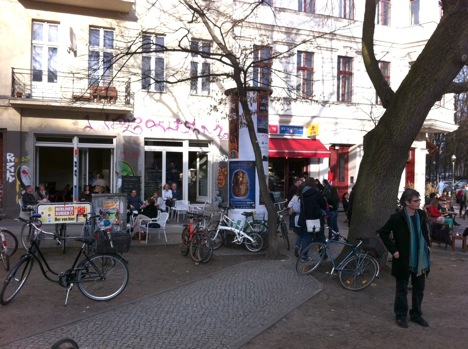 Berliners like to come relax by a Kanal via foot or bike; photo Jan Lundberg
Europe is more hip to climate change than most places in the modern world. But being oblivious is raging as well. A series of extreme, unseasonal seasons can see Berliners wilt and starve along with a larger population culled by the effects of weather chaos. Similarly, an oil-supply crisis originating in the Persian Gulf could trigger skyrocketing prices, panic buying and hoarding -- even amidst perfect climatic harmony if local food production cannot feed the Berlin-Brandenburg Metropolitan Region of about 4½ million residents. Sometimes one must forge ahead despite nightmare scenarios and be philosophical about unsettling trends. Since I have recently reached a phase of less obligation to family, I am able to consider living outside the U.S. It is no sacrifice to enjoy more convivial, community-rich regions. And my being here in northern Europe may make a difference in our sail transport efforts. Although Culture Change readers have seen little new content on the website in recent weeks, we have been joyously hard at work to bring good tidings of sail transport developments. Watch for exciting projects taking shape on both sides of the Atlantic and in the South Pacific. The sail transport movement is small enough for one to quickly find and meet all known players. The sense of solidarity for a common, historical purpose is high and on the rise. There is remarkably little tendency to compete with secrecy or place one's individualism before progress. But there is no big danger of these unproductive risks even if they crop up, as growing exposure for the new age of sail will no doubt attract many new supporters and participants. Growing expectations and confidence have characterized the sail transport movement as it becomes more viable -- despite today's huge subsidies for burning oil for transport. As society's values are forced to shift in a world bumping up against resource limits and monstrous pollution, there will be more activity and interest in sail power than even the most comprehensive database or website can present. We are not out to dominate a field, but to end Big Oil's domination of the seas, the land, and humanity. Please join us in any capacity you find practical. Our STN membership structure even offers a non-paying category for aspiring participants. See you out there on the water or at the dockside marketplace! * * * * * CO2 Record Highs - new study See more sail transport reports at SailTransportNetwork.org 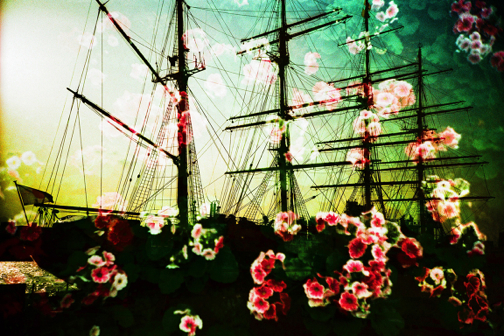 Hodachrome's photo at lomography.com/magazine/events/2012/04/30/lomokino-und-seemannsgarn-in-berlin
|
|||
 |
||
|
|
